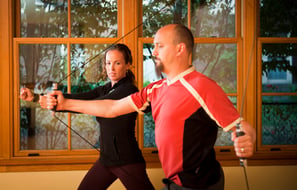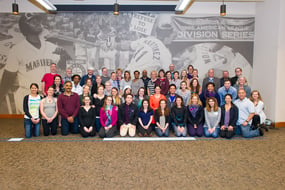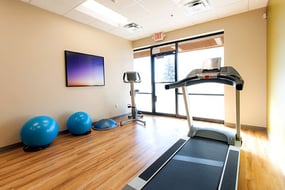“I know what to do, but I don’t know HOW to make it happen” – Every person at some point, probably
It’s a common debacle. We envision the changes we want to make and fail to gain traction after days or weeks of action. The process is exhausting. Visioning, getting up the courage to take on your dream, and acting on it numerous times in a row.
But that’s just it, we jump STRAIGHT into action, without planning or acknowledging our strengths, supports, resources, or possible challenges. It seems to me then, that the problem with making habits stick isn’t that we can’t change, rather that we don’t give ourselves ample opportunity to succeed.
The problem with making habits stick isn’t that we can’t change, rather that we don’t give ourselves ample opportunity to succeed.
How, then, can we be more successful? By creating a plan with flexibility and/or options to account for the changing, real-world conditions we live in.
We need to think of goal setting the same way an architect designs a bridge. Firm and strong, but with a little give and flexibility to bear the weight and load of day-to-day events. It’s time to do away with the idea of perfection versus failure.
The reality of our lives is that so little is black and white and that with the right preparation, we can progress slowly and surely into the waters of new habits. Much of what we accomplish starts with many small successes.
Having a flexible plan affords us more opportunities to be successful, assess our strengths and progress, and continue to forge ahead when challenges arise.
What does flexibility look like? Contingency plans! Give yourself plans A, B, and C, or name specific strategies that you will try when/if everything in your life does not go according to plan.
Here's an example.
In the next week, I will make half of my plate non-starchy vegetables 50% of the time at dinner.
Strategies:
If I do not have non-starchy vegetables available, I will choose a vegetable or whole grain to replace it.
If I am dining out, I will order a vegetable side.
If I do not prepare the meal, I will enjoy what was served and allow myself some flexibility to enjoy and savor my food.
If I know I am dining out for dinner, I will make half of my plate non-starchy vegetables at either breakfast or lunch.
Now, here comes the ultimate (not so secret) secret to your success — there will be times you will fail. And as Lisa said in her blog post last month, “there is learning in not doing.”
We’re not saying this to tell you to abandon all hope or to not keep trying, but rather be prepared to have setbacks. It's perfectly normal! On these days, I encourage you to look for your progress rather than perfection. Assessing your strengths and growth amidst times of perceived failure is paramount to your continued ability to make a habit stick, and to put a stop to patterns of negative thinking.
When is the last time you honestly thought about and told yourself something you did well amidst a setback? Perhaps it was yesterday, or maybe it was two years ago from never. Either way, I encourage you to give this practice a try.
So, how do we make habits stick? By getting real with our process and emphasizing growth rather than shortcomings. Take the time to sit down and put together a plan of what you might regularly be doing to accomplish whatever it is you are looking to do.
It’s okay if it’s not perfect! Give yourself a guiding light by laying it all out there and leave space for a few rest stops to check in on your progress. Trust yourself! I promise you know what you are doing.
If you'd like to see more content like this, use the form below to subscribe to our blog.
Sign up
Join our email list to receive the latest open positions, Vera Careers news, and more.





